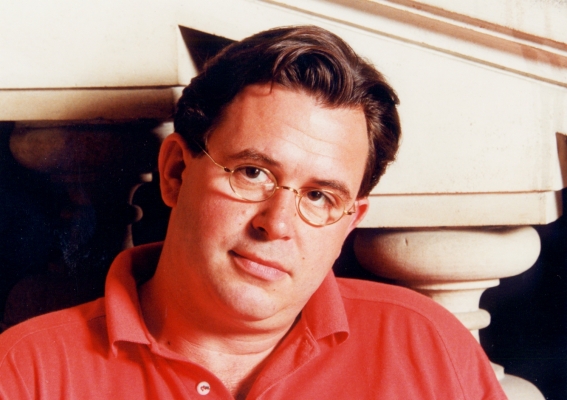

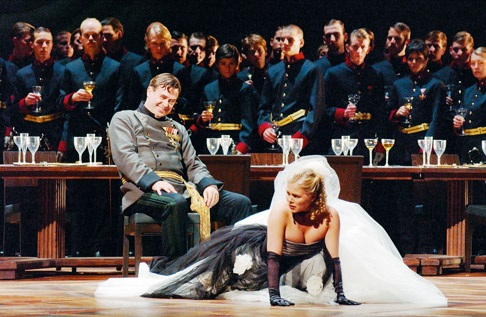 BD: Do you find that DVDs are competing with you
in the theater, or is it a good addition to the theatrical performances?
BD: Do you find that DVDs are competing with you
in the theater, or is it a good addition to the theatrical performances?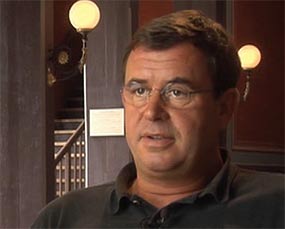 FH: You do. For example, here in Chicago
you can sing as soft as you like. You wouldn’t believe! It’s
a wonderful projection, especially with very soft notes. We found that
out. For example, if you have colleagues like Susan Graham, she just
sits out in the house at rehearsal and says, “Wow, that sounded really good!
Do that more.” And I do the same with her because you can’t hear yourself.
That is the mystery about singing! If we always could hear ourselves,
that would be easier. You need colleagues or conductors or people you
trust who just sit out there and say how far you come down or how far you
have to go up.
FH: You do. For example, here in Chicago
you can sing as soft as you like. You wouldn’t believe! It’s
a wonderful projection, especially with very soft notes. We found that
out. For example, if you have colleagues like Susan Graham, she just
sits out in the house at rehearsal and says, “Wow, that sounded really good!
Do that more.” And I do the same with her because you can’t hear yourself.
That is the mystery about singing! If we always could hear ourselves,
that would be easier. You need colleagues or conductors or people you
trust who just sit out there and say how far you come down or how far you
have to go up. 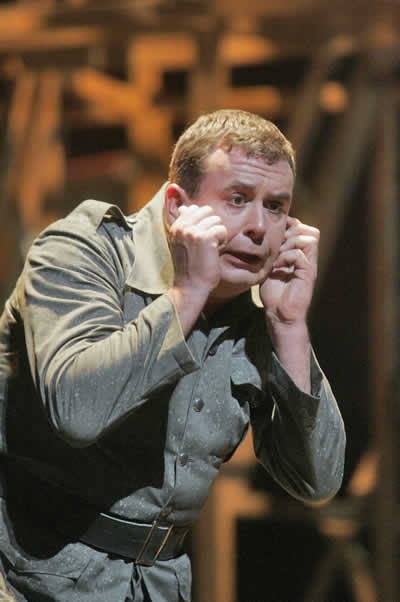 BD: So everyone else is crazy but he is all right?
BD: So everyone else is crazy but he is all right?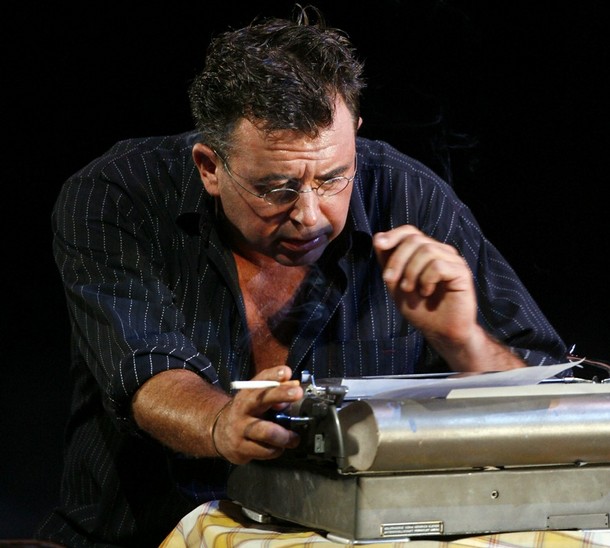 BD: If you met with a composer, what advice would
you have for him or her?
BD: If you met with a composer, what advice would
you have for him or her?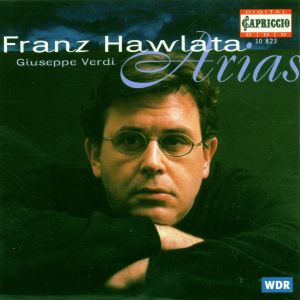 FH: Yes, I do. And I pace my own life, and
to bring these two things together is not very easy. I have artistic
ideas and visions, but I also have a family and two kids who go to school
and can’t come with me. So I have to please them and my artistry, but
somehow, until now, it worked. I hope it goes on like this.
FH: Yes, I do. And I pace my own life, and
to bring these two things together is not very easy. I have artistic
ideas and visions, but I also have a family and two kids who go to school
and can’t come with me. So I have to please them and my artistry, but
somehow, until now, it worked. I hope it goes on like this.| Franz Hawlata was born in 1963
in the Bavarian town of Eichstätt where he began his musical training.
He completed his studies at the Musikhochschule in Munich under the guidance
of Ernst Häfliger,
Hans Hotter and Erik Werba and by the late 80s had won several competitions
and made his professional debut at Munich’s Gärtnerplatztheater. His
international career began shortly thereafter with engagements in Lyon,
San Francisco and Amsterdam. In the 1993/94 season Franz Hawlata sang Baron Ochs in Der Rosenkavalier with Welsh National Opera, a production which launched him onto the next stage of his career and a role which became one of his great calling cards of the next decade. Franz sang this role for his debut at the Metropolitan Opera (1994/95) as well as at the Vienna State Opera, l’Opera National de Paris, Covent Garden, the Salzburg Festival, Bayerische Staatsoper Munich, San Francisco Opera, and with both the Met and the Vienna State Opera in Japan. Since the early 90s, Franz Hawlata has enjoyed a close relationship with the Staatsoper in Vienna where he has now sung over 200 performances including Baron Ochs, Sarastro, Rocco, Jokanaan, Kaspar, Leporello, Figaro, Wozzeck, Orest, Papageno and Daland. Franz Hawlata sang his first Hans Sachs (Die Meistersinger) with Zubin Mehta at the Maggio Musicale in Florence in the 2003/04 season and his first Ring (as Wotan) at the Staatstheater Meiningen in 2005/06 season. Over the past seasons, Franz Hawlata has made many major débuts: at the Paris Bastille (Mahagonny), Covent Garden (Leporello), Salzburg Festival (Osmin), Paris Chatelet (Rossignol), Liceu Barcelona (Wozzeck) and Lyric Opera of Chicago (Daland). Return productions followed: at the Met (Rigoletto), Bastille (Rusalka, Wozzeck, Capriccio), Covent Garden (Rusalka), Lyric Opera of Chicago (Der Rosenkavalier) and the Salzburg Festival (Così fan tutte, Don Giovanni). Major appearances in the 2006/07 season include his first Tristan in Brussels, Der Rosenkavalier in Paris, Monte Carlo and Berlin, Rusalka in Torino and Wozzeck in San Diego. This summer marks Franz Hawlata’s debut at the Bayreuth Festival as Hans Sachs in the new production of Die Meistersinger. Franz Hawlata is increasingly in demand as a concert singer and his discography includes: Rocco/Leonore (with Gardiner on DG Archiv); Water Spirit/Rusalka (with Mackerras on Decca); Franz Schmidt’s Buch mit sieben Siegeln (with Harnoncourt on Teldec-Warner); Loewe’s Three Wishes, Spohr’s Faust; Nicolai’s Merry Wives of Windsor and Marschner’s Vampyr as well as solo recordings of German opera arias, an all-Verdi programme as well as Lieder by Carl Loewe (all on Capriccio). |
This interview was recorded in Chicago on March 9, 2006. The
transcription was made in 2008 and posted on this website in 2009 for eventual
publication in The Opera Journal.
To see a full list (with links) of interviews which have been transcribed and posted on this website, click here.
Award - winning broadcaster Bruce Duffie was with WNIB, Classical 97 in Chicago from 1975 until its final moment as a classical station in February of 2001. His interviews have also appeared in various magazines and journals since 1980, and he now continues his broadcast series on WNUR-FM.
You are invited to visit his website for more information about his work, including selected transcripts of other interviews, plus a full list of his guests. He would also like to call your attention to the photos and information about his grandfather, who was a pioneer in the automotive field more than a century ago. You may also send him E-Mail with comments, questions and suggestions.